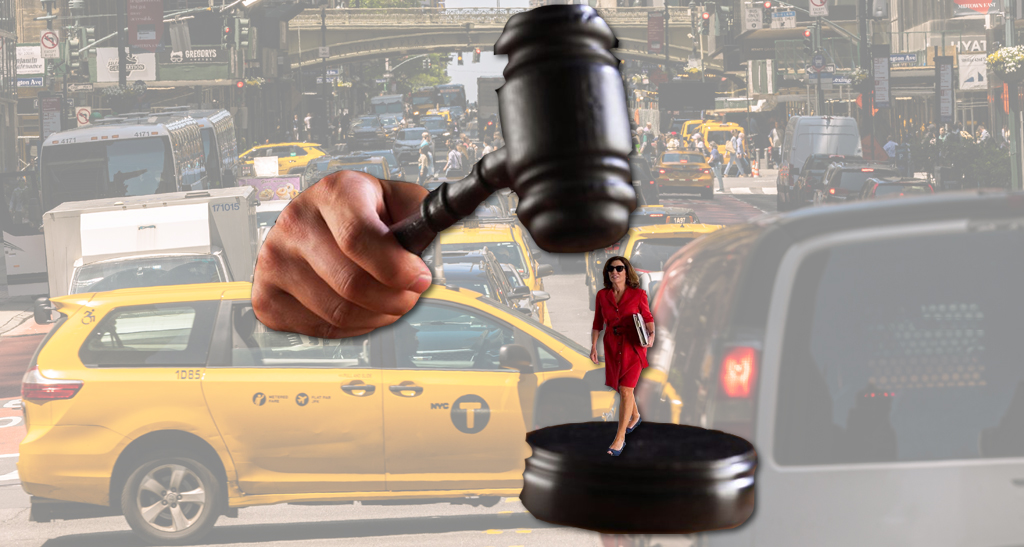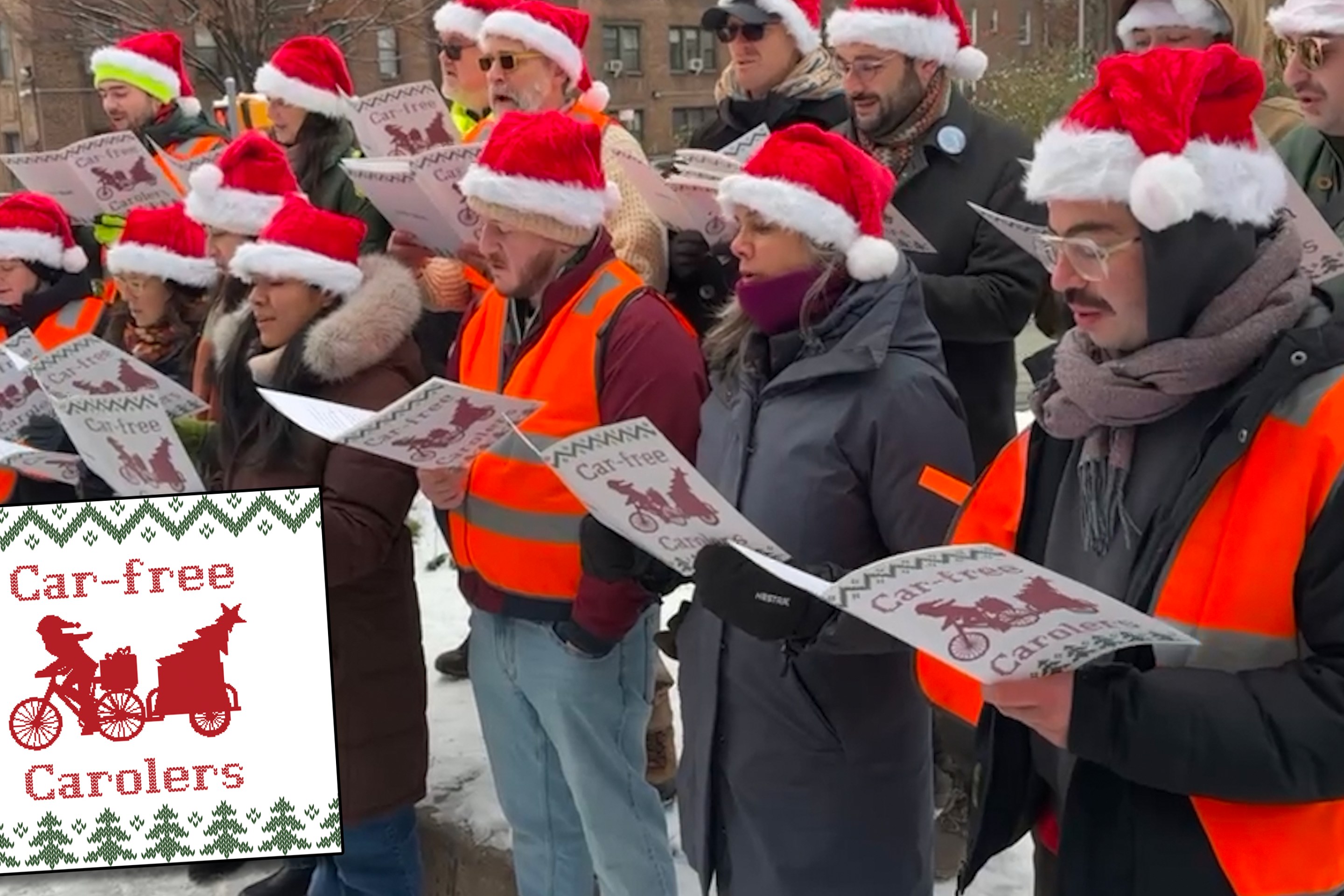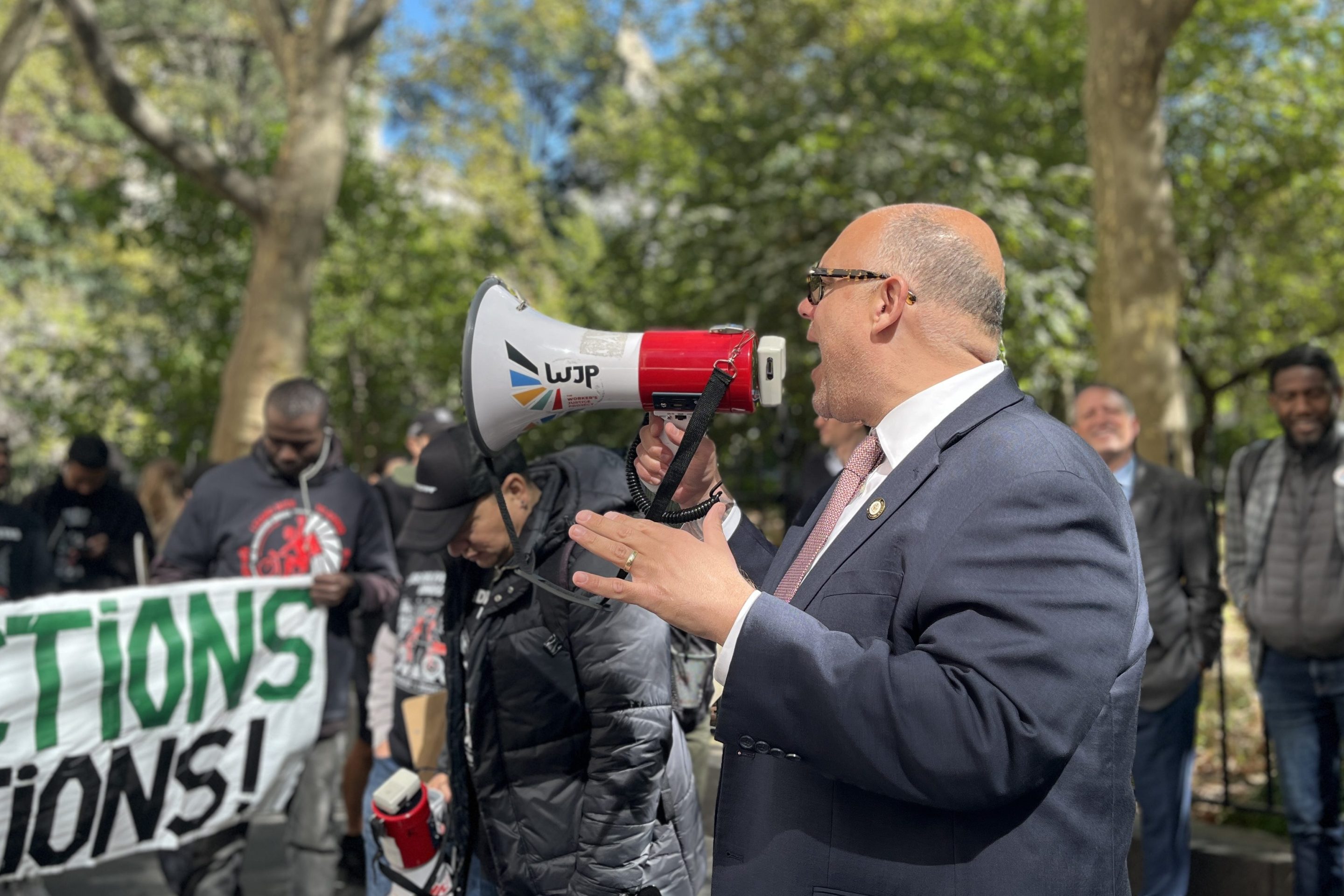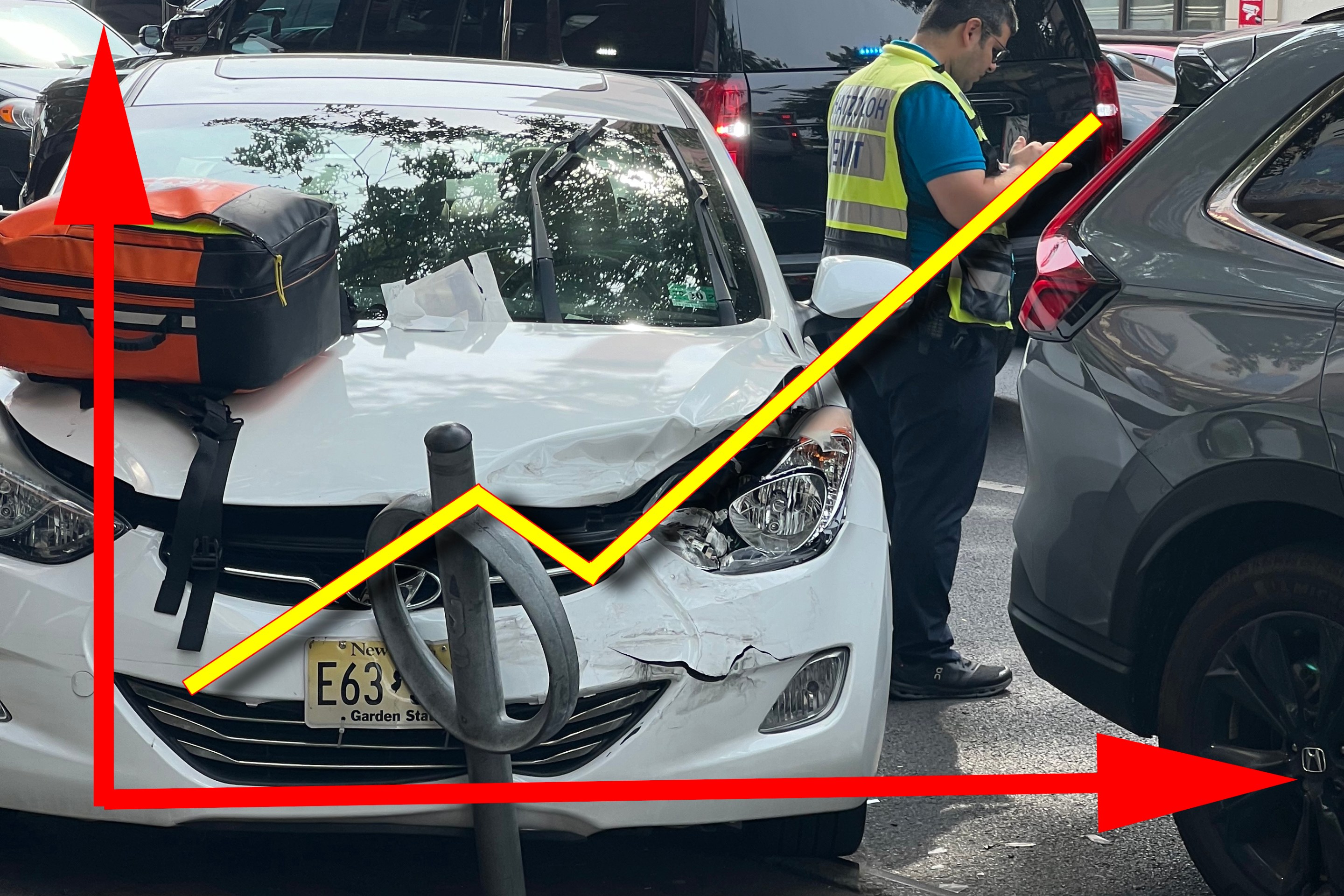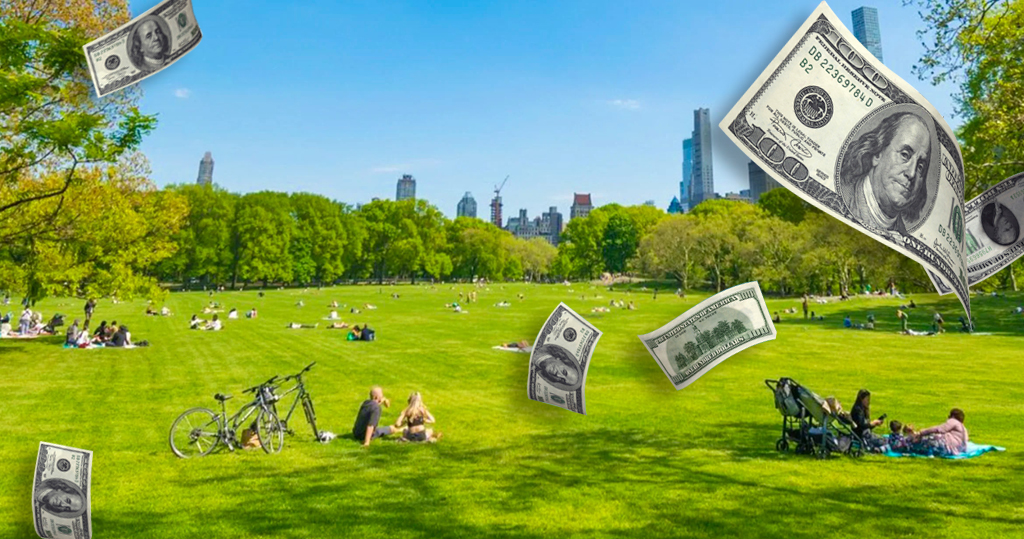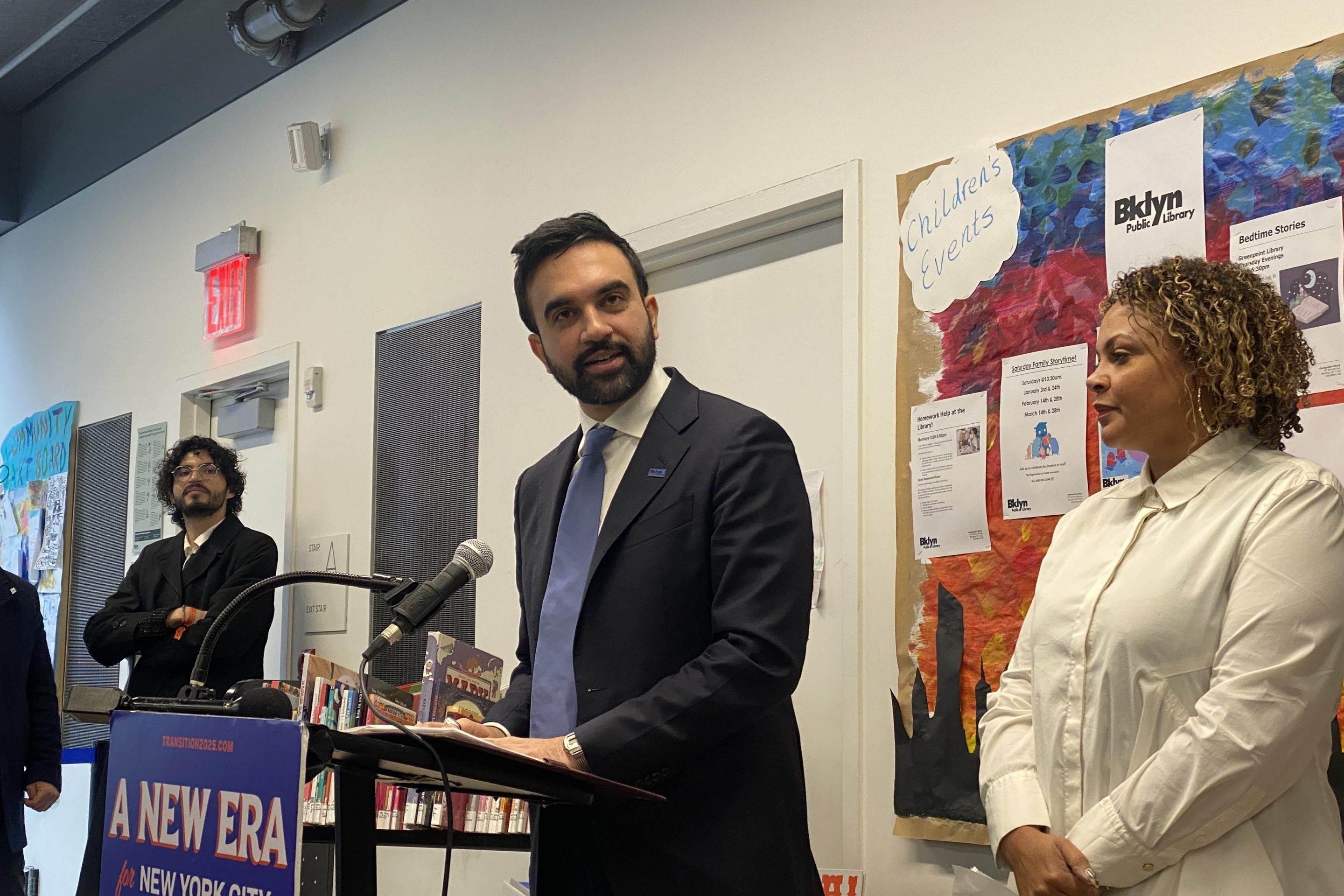Gov. Hochul cannot be compelled to end her congestion pricing "pause" because she hasn't technically done anything yet by refusing to implement the state-mandated toll according to schedule, her lawyers are arguing.
In motion filed on Friday night to toss a pair of lawsuits aimed at restarting the congestion toll, the governor's high-powered attorneys argued she is immune from any lawsuit because it was not a final decision on the future of the program.
The plaintiffs pushing to get the toll off the ground have misread state law, according to Hochul's legal team, who argued further that the state Department of Transportation has discretion to sign a required federal document — known as the Value Pricing Pilot Program agreement — that authorizes the tolls.
"Both petitions try to camouflage the nonjusticiable nature of this dispute, including through misreading state statutes, mischaracterizing Gov. Hochul’s pause as a final agency determination, [and] baselessly minimizing NYS DOT’s role in congestion pricing," the attorneys wrote in their motion.
The governor faces two lawsuits arguing that her congestion pricing "pause" violated the state law that established the tolling program, plus a pair of state environmental laws, the Green Amendment and the Community Leadership and Climate Protection Act.
Her refusal to begin the program violated Article 78 of New York's civil practice law, which prohibits "arbitrary and capricious" decision-making, the suits claim.
But the question of whether or not to implement congestion pricing is a political decision up to the governor's discretion, Hochul's lawyers insisted on Friday — while also claiming the governor's language defining the "pause" means the decision can't be subject to any state laws it may actually contravene.
A decision isn't eligible for a legal challenge unless it is 100 percent final, the governor's lawyers claimed. And because her "pause" was "temporary," the governor could still yet change her mind and allow the tolls to move forward.
"Petitioners seek to convert this temporary pause into a final agency determination," the governor's lawyers wrote. "Gov. Hochul has not reached a definitive position on congestion pricing."
In regards to state climate law, plaintiffs can't claim a violation without alleging a specific injury to the plaintiffs that can be remedied with their suit, the governor's attorneys said.
In regards to the VPPP agreement — the key bureaucratic step Hochul shirked as part of her "indefinite pause" decision — Hochul's attorneys said that a judge forcing an executive to take an action is an extraordinary and rare step that should only be available in the event where the law is clearly being violated.
Even though the 2019 state law says that the MTA "shall" institute congestion pricing, Hochul's attorneys argue that the language "does nothing to establish that [the state] failed to perform a duty enjoined by law," they wrote. Rather, the law instructs the MTA to act rather than the governor.
The dispute over whether state DOT Commissioner Marie Therese Dominiguez can be compelled to sign the VPPP agreement is a crucial one. The plaintiffs argue that Dominguez has no choice but to sign because it is a "ministerial" decision, or one that's required by law. Hochul's lawyers argue that the decision is "discretionary," and up to Dominiguez and her boss Gov. Hochul.
"Deciding to sign such an agreement requires state DOT to advocate for its various interests and priorities, make strategic decisions regarding where compromise is possible and where particular terms are essential, and weigh costs and benefits to itself," the attorneys wrote.
"Indeed, the discretionary rather than ministerial nature of the decision to sign the Tolling Agreement is further underscored by the iterative nature of negotiating and drafting such an agreement. To this day, there is no finalized, signature-ready version of the Tolling Agreement amongst the Project Sponsors."
So does Hochul have a case?
An outside legal observer said that Hochul's strongest argument was the one that argued that the plaintiffs had failed to show the Traffic Mobility Act required her to get out of the way and allow the MTA to establish congestion pricing.
"It was surprising how little of [the brief] was really responsive to the merits of the argument that there is a statutory obligation here, that it's non-discretionary, that [Gov. Hochul] is obligated to to engage in," said Michael Pollack, a law professor at the Benjamin N. Cardozo School of Law.
The governor's insistence that the pause is merely temporary is too vague to completely work in her favor, Pollack said, because trying to hide a decision behind the word "indefinite" is too obvious of a way to hide the ball from a judge.
But Hochul's attorneys are making a "ridiculous" argument that a judge cannot order the governor to make a politically sensitive decision, Pollack said.
"Just because a question is politically sensitive or politically salient does not make it a political question that courts can't resolve. If this is a political question, it's hard to imagine what important litigation isn't, and that that can't be true," he told Streetsblog.
"It's clever, but I would hope that a court would see through what is, I think, a fairly transparent way to evade judicial review," Pollack added. "A governor or state agency could just never say that anything they're deciding is permanent. They're just going to indefinitely, pause everything forever, and thereby evade any sort of judicial oversight."
The governor's insistence that the "pause" isn't a decision won't deter attorneys for the groups behind the lawsuits.
"They're saying it's a temporary pause, but there is no end date that would make it temporary, and there's no triggering event that would end the pause," said Rachel Spector, an attorney for Earthjustice, which represents Riders Alliance, the New York City Environmental Justice Alliance and the Sierra Club in the suit over violations of state climate law.
"If you look at our petition, there's information about specific individuals who are members of these groups, who have respiratory illnesses or other conditions that make them specifically vulnerable to air pollution," Spector said. "They're suffering an injury every day by the continuation of those high levels of air pollution that come from traffic in New York City."
